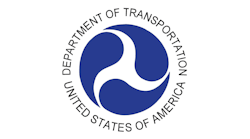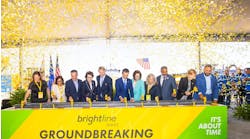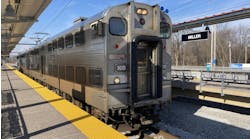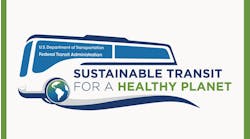The U.S. Department of Transportation’s Federal Transit Administration (FTA) has announced the latest project selections for the Low and No-Emission Vehicle Deployment Program, known as Low-No. Seven transit providers in five states will receive a share of $22.5 million toward transit buses and related facilities that utilize battery-electric, fuel cell, and other innovative technologies to reduce harmful greenhouse gas emissions and improve operating efficiency.
“This Administration is committed to investing in an economy powered by clean transportation,” said U.S. Transportation Secretary Anthony Foxx. “The Department of Transportation is proud to build on the successful Low-No program to put more American-made, energy-efficient buses into service across America.”
FTA awarded the FY 2015 funds after a highly-competitive review process that prioritized transit agencies and bus manufacturers with strong records in building, deploying, and operating clean buses and infrastructure. The Low-No program helps advance President Obama’s vision for a 21st Century Clean Transportation System and the Department’s Beyond Traffic framework for investing in a strong and sustainable transportation network that will meet the needs of our nation in the years ahead.
“Thanks to these grants, more transit riders around the country will be able to enjoy the latest in bus technology, resulting in cleaner air and lower costs in the long run,” said FTA Acting Administrator Carolyn Flowers. “By supporting American manufacturing and local workers, FTA’s Low-No grants exemplify Secretary Foxx’s commitment to building Ladders of Opportunity.”
Projects:
- The Southeastern Pennsylvania Transportation Authority (SEPTA) will receive $2,585,075 toward the purchase of 25 zero-emission all-electric buses and related equipment. These vehicles will be deployed on bus routes in South Philadelphia and an associated workforce development program will further contribute to the project's economic impact. SEPTA’s extensive local commitment resulted in efficient leveraging of federal funds, allowing them to purchase many more vehicles than other recipients.
- The Los Angeles County Metropolitan Transportation Authority (LACMTA) will receive $4,275,000 toward five battery-electric zero-emission buses, as well as eight charging stations. This electric bus infrastructure will serve the Metro Orange Line bus rapid transit corridor in the City of Los Angeles. LACMTA will also partner with the Southern California Regional Transit Training Consortium to include workforce development in support of zero-emission technology.
- The Stark Area Regional Transit Authority (SARTA) will receive $4,015,174 toward three zero-emission American Fuel Cell Buses (AFCBs). This project will build on SARTA’s successful, existing fuel cell bus program, which has already established hydrogen fuel cell infrastructure and will soon deploy five additional AFCBs in Stark County, Ohio. SARTA held an event in Columbus, Ohio today celebrating the launch of the first of those fuel cell buses, along with FTA regional staff, representatives from The Ohio State University’s Center for Automotive Research, and others.
- Foothill Transit will receive $1,310,000 toward electric charging facilities that will support the agency’s ongoing electric bus program, which includes an electric-only bus line. This program will help expand Foothill Transit’s electric bus capabilities.
- Alameda-Contra Costa Transit District (AC Transit) will receive $1,551,611 toward five battery-electric buses and related equipment. AC Transit has experience deploying zero-emission buses, including battery-electric buses and fuel cell electric buses. This project will expand AC Transit's clean vehicle infrastructure in addition to providing valuable data comparing battery-electric to fuel cell technology.
- The Utah Transit Authority (UTA) will receive $5,427,100 toward five battery-electric zero-emission buses. Partnering with the University of Utah, these buses will serve the route connecting the campus to Salt Lake City. This program builds on UTA’s extensive commitment to low and no-emission vehicles and technology.
- King County Metro will receive $3,336,040 toward eight battery-electric zero-emission buses, which will allow two routes to be operated using entirely zero-emission vehicles.
The FTA’s Low or No Emission Vehicle Deployment Program was established under the Moving Ahead for Progress in the 21st Century Act (MAP-21) and re-authorized in the Fixing America’s Surface Transportation (FAST) Act. FTA previously awarded $55 million to 10 projects in February 2015 under the first round of funding made available through this program.
The FAST Act also made the Low-No program, previously funded and managed under FTA’s research programs, a subset of the larger competitive bus program. Interested parties currently have the opportunity to apply for $55 million in FY2016 Low-No funding, for which the application period closes in May 2016.
The Low-No program focuses on commercializing the cleanest and most energy-efficient U.S.-made transit buses to help reduce emissions such as carbon dioxide and carbon monoxide. The program builds on the success of FTA’s National Fuel Cell Bus Program, which invested in the research, development and testing of alternative fuels and related equipment for the transit industry.



